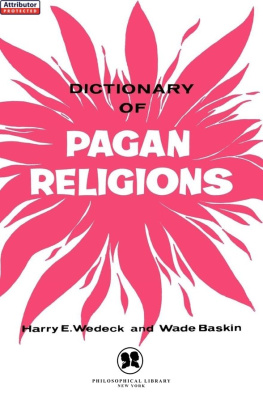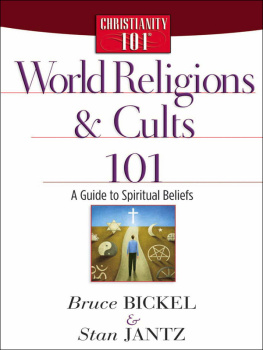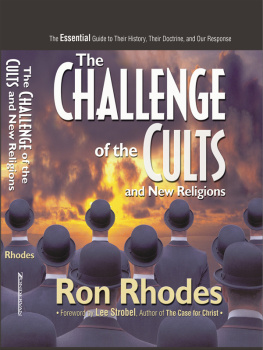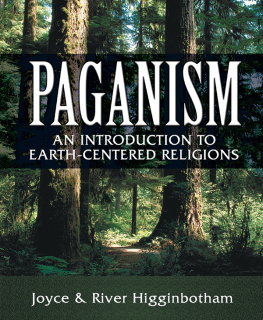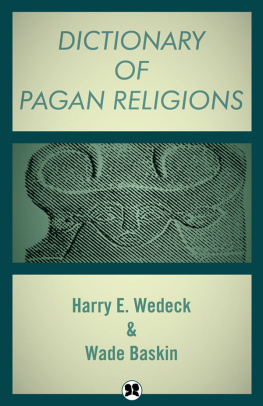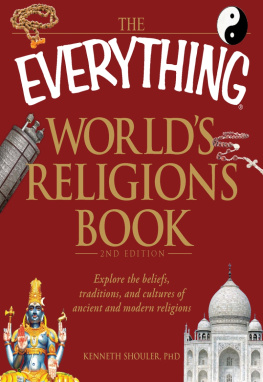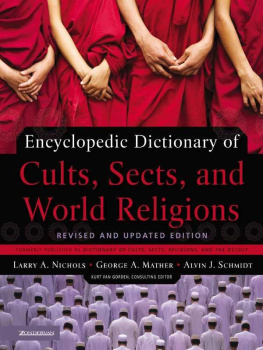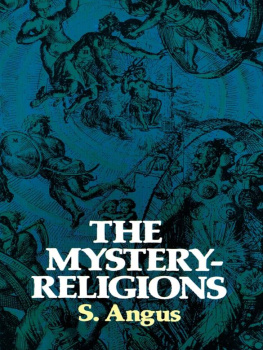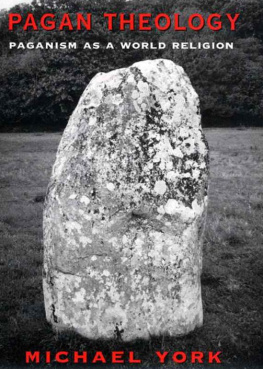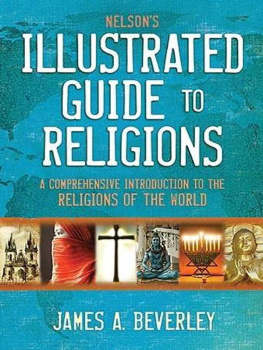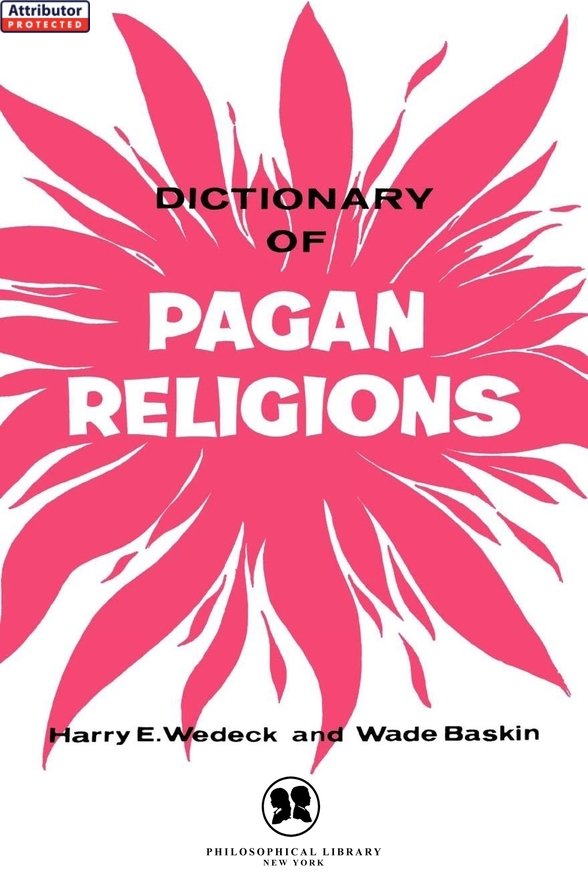A
AAHLA In Egyptian religion, one of the divisions of the Ament, or lower regions. The word means field of peace.
AARU In Egyptian religion, the abode of the blessed dead. The celestial field, encircled by an iron wall, is covered with wheat. The dead are represented as gleaning this wheat, which is the symbol of Karma, the law of retribution.
AATS In Egyptian religion, the fourteen or fifteen Aats or domains constituted the Elysian Fields. Each Aat was presided over by a different deity.
ABADDON The Hebrew name of the angel of the bottomless pit or the destroying angel, called Apollyon in Greek. Medieval demonographers regarded him as the causer of wars.
ABADIR In the Punic language, this name denotes mighty father. This title was bestowed by the Carthaginians on their principal deities.
ABARIS A mythical hyperborean priest of Apollo said to have been endowed with the gift of prophecy.
ABASTOR In classical mythology, the name of one of the horses of Pluto, god of the underworld.
ABATUR In Gnosticism, the father of the Demiurgus, corresponding to the third Logos in the esoteric teachings of antiquity.
ABBA AMONA In the Cabala, the occult names of the two higher Sephiroth of the upper triad. Sephira or Kether stands at the apex or head of the Sephirothal Tree. The Hebrew words mean Father-Mother.
ABELLION In Celtic mythology, a divinity who was identified with the Roman god Apollo.
ABERIDES In classical mythology, a variant name for the ancient Roman god Saturn.
ABHISEKA A term used by Buddhists for the tenth stage of perfection. It is also used to designate the ceremonial bathing in sacred waters as practiced by many Hindus.
ABLANATHANALBA In Gnosticism, a term similar to Abracadabra. It reads the same from either end and was used as a charm in Egypt. It may mean thou art a father to us.
ABO TANI According to one legend preserved by the Apa Tanis, a primitive tribe of the eastern Himalayas, the first man was Abo Tani. He was created by Hilo.
ABODE OF GODS In Norse religion, the abode of the gods was made from the head of the giant Ymir.
ABORIGINAL SOCIETIES Among Australian aborigines, men are grouped, with regard to birth, locality, and so on, into societies. These societies maintain certain cults associated with totemism.
ABORIGINES Australian aborigines conceive that human beings, in groups, are linked to a particular species of animal such as the kangaroo, the iguana, the emu, or to a phenomenon such as rain. These species form the totems of each human group.
ABRACADABRA A symbolic word first used in a medical treatise by Samonicus. It is supposed to be a corruption of the sacred Gnostic term Abraxas, a magic formula meaning Hurt me not. It was attached to an amulet and worn on the breast.
(ABRASAX) ABRAXAS Variant of abraxas, a symbolic word traced back to Basilides of Alexandria, who used it as a title for the divinity. In Greek numeration, the seven letters total 365, the days of the solar year, which represents a cycle of divine action.
ABRAXAS This mystic term was in vogue among the Gnostic sect that was founded by Basilides in the second century A.D. In Greek numerology Abraxas denoted the number 365, the number of days in a year. Also, this was the sum total of the spirits who emanated from God.
Among occultists the word Abraxas, engraved on stones or gems, was held to have a mystic significance.
ABSU In Chaldean mysticism, the name for Space, the dwelling place of Ab, the Father or Head of the Source of the Waters of Knowledge.
ABSYRTUS In Greek and Roman mythology, a brother of Medea, who killed him and cut his body into pieces in order to detain their father as she fled from Colchis.
ABYDOS The ancient holy city of Osiris, god of the dead. It lies two hundred miles north of Luxor and was the sanctuary of an even older mortuary god before Osiris came to dwell there. Kings delighted to honor the place, and people came from all over Egypt to lay their bones in its sanctified ground, hoping thereby to win greater glory in the next world. The exact location of the tomb of Osiris was known to the devout.
ABYSS In Egyptian religion, the Abyss was a descriptive name for the underworld of the dead. In Babylonian thought it was the primeval chaos from which the universe evolved. In Gnosticism it was personified as the first principle of the infinite deity.
ABZU In Sumerian religion, the watery abyss that is the abode of the god Enki, the Lord of Wisdom.
ACAVISR In Etruscan religion, a deity whose functions were subsidiary to those of the major divinities.
ACCA LARENTIA An ancient Italic deity. She was worshipped as the protectress of crops. A festival in her honor was held on December 23.
ACERSECOMES In Greek religion, a descriptive term applied to the god Apollo. It denotes the uncut hair on the head of the deity.
ACESTES The son of the Sicilian river god Crimisus.
ACHELOUS In Greek religion, a river god. In Etruscan art, he is represented as a bull with a human face. In popular belief, swift, foaming water is often identified with horses or bulls. The Etruscans used masks of Achelous to protect from evil the objects or buildings they adorned.
ACHERON In Greek mythology, Acheron was one of the rivers of Hades. It is mentioned by Homer, in his epic poetry.
ACHORUS Among the inhabitants of ancient Cyrene, the god of flies. Sacrifices were made to this god for deliverance from the insects.
ACMON In Greek mythology, a deity who existed before the creation of heaven.
ACNA She is the moon goddess of the Mayas.
ACOSMISM A type of pantheism which denies the existence of the universe as distinct from the Absolute.
ACRATOPOTES In classical mythology, a name applied to the god Bacchus.
In Greek, the expression means a drinker of sheer wine.
ACRATUS In Greek mythology, a deity worshipped by the Athenians.
ADAD In Babylonian mythology, a god of wind and storm, known also as Ramman and, earlier in Palestine and Syria, as Hadad. The ancient storm god of the Amorites.
ADAM KADMON In the Cabala, the Archetypal Man or Humanity. It is the manifested Logos.
ADAPA In Babylonian mythology, this deity is associated with Ea, who endowed him with wisdom. Adapa was offered bread and water of life by the gods. Summoned before Anu, the sky god, he refused to accept the offer and lost the attribute of immortality.
ADDEPHAGIA In classical mythology, the goddess of gluttony. She received special worship from the Sicilians.
ADITI In Vedic Hinduism, an abstract goddess whose name signifies boundlessness.
ADITYAS In Hinduism, a group of gods, all sons of Aditi. The most important of them is Varuna, and the other eleven are his personified attributes: Mitra, Aryaman, Bhaga, Daksa, Amas, Dhatar, Indra, Vivasvant, Martanda, Surya, and Vishnu.
ADONIS In Greek legend, a youth who was loved by Aphrodite but whom he repulsed. He was killed by a boar during a hunt and his death was deeply lamented by Aphrodite. Although he was required to descend into the kingdom of the dead, he was permitted to return to the upper earth in spring and summer, to live with Aphrodite. His story symbolized a vegetation myth, and his rebirth corresponds to the myth of Ishtar and her lover Tammuz, the Babylonian god of vegetation.

